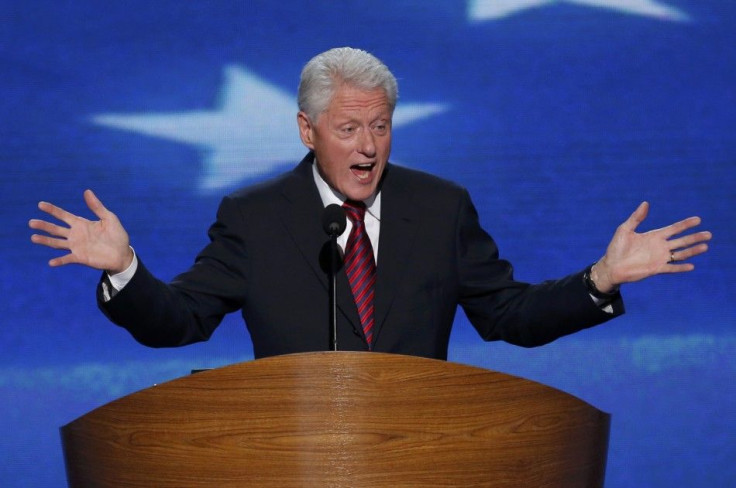Consumers More Confident In September, But Only The Ones Who Bleed Blue

The most widely followed index of consumer confidence in the United States spiked up dramatically in September, surprising economists and market-watchers who had expected only a mild rise from August levels. But the reasons for the spike might be even more surprising: According to various datasets, optimism in the American economy is being driven on the belief by self-identified Democrats that the economy would improve in the nearby future.
On Tuesday, the private Conference Board released its monthly survey of consumer confidence, which found its benchmark index rose to 70.3, from 61.3 in August. Economists surveyed by Reuters had expected a reading of 63. The boost was mostly due to future expectations on the state of the economy, with the Conference Board noting the subindex that measures that facet of consumer psychology had risen more rapidly than the metric that looks at the “present situation.”
“Despite continuing economic uncertainty, consumers are slightly more optimistic than they have been in several months,” said Lynn Franco, director of economic indicators at the Conference Board, said in a statement.
It was the highest reading since February and showed consumers are more optimistic than last month about the job market and inflation.
But to further interpret those numbers, it’s useful to look at a separate weekly survey, also of consumer confidence, conducted by pollster Gallup, which found that from Sept. 16 through Sunday, the entire gain in consumer confidence was reported by people who self-identify as Democrats or independents. While Gallup’s confidence index for Republicans did not budge on the month, the reading for Democrats went from 7 to 30 points. Meanwhile, the index for independents rose from -35 to -27.
The clear partisan assessment on the state of the economy suggests people might be making forecasts on the future based on the belief their presidential candidate will win. At least one economist, Mark Vitner at Wells Fargo Securities, explained to the Associated Press that part of the reason for the party-linked assessment might be the fact Democrats who watched their party’s convention earlier this month probably saw some hope in former President Bill Clinton’s speech, which “rekindled memories of better economic times.”
That’s pretty much the opposite to the way political scientists interpret consumer confidence numbers in a political setting, with the assumption higher numbers indicate a higher likelihood an incumbent candidate will win and not the other way around.
It also suggests the rise in confidence will not be here to stay.
“While the rise in consumer confidence is encouraging, it will take further improvement in income and labor market trends to sustainably push confidence higher and large downside risks, especially the crisis in Europe and domestic fiscal policy, remain,” Cooper Howes, an economist at Barclays Capital.
On a more purely psychological level, Vitner, the Wells Fargo economists, suggests a hope-and-change rally in consumer sentiment belies a paradox of hope preempting change.
"The persistent weakness in how consumers view the present economic situation essentially lowers the bar for future expectations," Vitner wrote in a note to clients Wednesday.
But paradoxically, "the reverse needs to happen before the economic recovery achieves the escape velocity needed to break free of its recent low altitude orbit of around 2.0 percent real GDP growth ... consumers need to feel even better about current conditions than they do about the future in order for economic growth to really take off."
© Copyright IBTimes 2024. All rights reserved.











